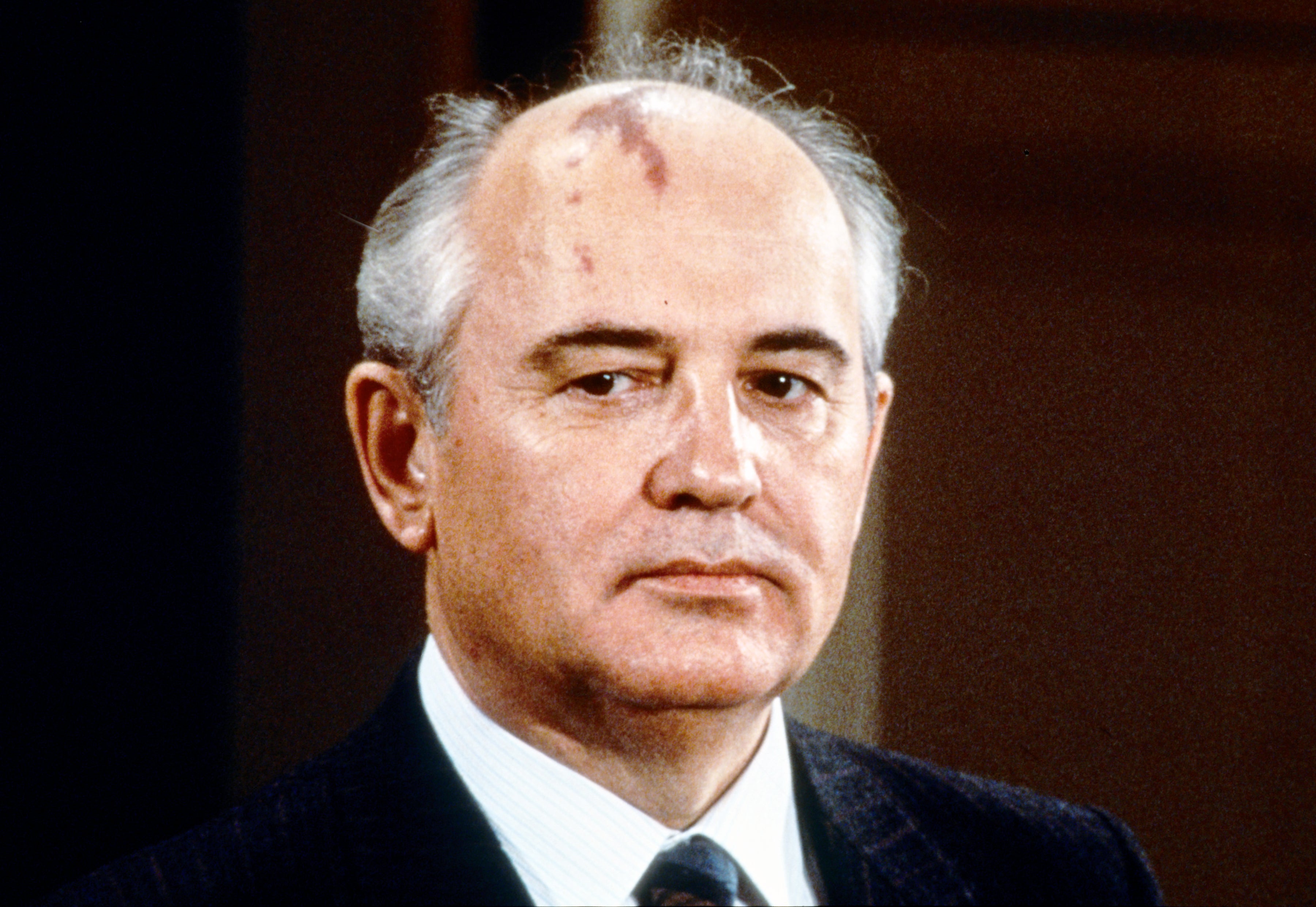Mikhail Gorbachev, the Kremlin chief who brought on the end of the Cold War—and, with it, the collapse of the Soviet Union—died on Tuesday at the age of 91. The only thing more remarkable than his towering accomplishments while in office may be his utter irrelevance in the decades since.
Gorbachev was among the most consequential figures of the 20th century. The reforms that he instigated, soon after taking over as general secretary of the Communist Party in the spring of 1985, were staggering. Glasnost brought free speech and the uncensoring of history to a country that had almost always been awash in censorship and propaganda. Perestroika aimed to restructure the economy, loosening it from the clutches of inefficient ministries and opening it to market forces. And his diplomatic ventures wound up mending a divided Europe and ending the arms race with the United States.
And yet, just a few years after his reforms got underway, a widespread consensus took hold, among the citizens who supported him the most, that he had gone both too far and not far enough.
When I arrived in Moscow in 1992, as the Boston Globe’s new bureau chief, less than a year after the USSR’s implosion and Gorbachev’s retirement from power, I was surprised how many Western-leaning Muscovites I met—journalists, economists, intellectuals, whose new lives and freedoms were rooted in this man’s reforms—held him in such contempt. He had destroyed the old system without creating a new one, and that was, to many of them, unforgivable.
This was Gorbachev’s tragedy: He thought he could make the Soviet Union more Western—letting in free ideas and free markets—while retaining the Communist Party’s grip on its politics. But the Party couldn’t survive the shocks; it couldn’t be thoroughly reformed without falling apart. This was the lesson that other authoritarian leaders, especially in China, learned by watching from afar: reform the economy first, not the politics. They later learned they could reform the economy without bothering to change politics—at least for a while (we will see, someday, for how long).
The turning point for Gorbachev came in August 1991, when hard-line Communists arrested him while he was vacationing at his Crimean dacha, and tried to mount a coup. The putsch failed, thanks in large part to the resistance mounted back in Moscow by masses of citizens as well as key army officers, all rallying behind Boris Yeltsin, the charismatic, radically reformist president of the Russian Federation.
Gorbachev too had played a heroic, though less public, role while in captivity, resisting the putschists’ demands to resign as the USSR’s president and sign over power to them. But by the time the putschists were arrested and Gorbachev flew back to Moscow, the country had changed more than he could have foreseen. In his returning speech, he continued to laud the productive role of the Communist Party; he expected to resume the steady course of his reforms. But Yeltsin and those who had struggled on the front lines were ready for more—the defrocking of the Party, the breakup of the Soviet Union, and deeper steps toward Western-style freedoms.
On Christmas Day 1991, Gorbachev peacefully stepped down, Yeltsin moved into the Kremlin, and the 15 republics of the Soviet Union became independent—though few had the resources or political shrewdness to go it alone in any successful way.
Still, Gorbachev had set the stage for the success stories that did take place. He did this soon after ascending to the Kremlin’s helm. He realized that the Soviet economy was in shambles and would go bankrupt if the arms race with the West continued. In November 1985, just a few months after taking power, he attended a summit in Geneva with President Ronald Reagan, and saw that this man—whatever his flaws and limitations—was not about to attack the Soviet Union, after all. And so he felt secure to order drastic cuts in military spending and to reorient the economy to civilian goods, many of them imported.
Over the next three years, Reagan and Gorbachev became unlikely friends and even collaborators. (As some of his hawkish aides were horrified to discover, Reagan had always been a secret nuclear abolitionist.) At the Moscow summit in the spring of 1988, Reagan declared that the “evil empire”—his description of the USSR—was a thing of the past. Major arms-reduction treaties were signed; trade, investment, and cooperation blossomed.
None of this would have happened if Gorbachev’s two predecessors hadn’t died so suddenly—Yuri Andropov of kidney failure, Konstantin Chernenko of generally failing health—after ruling for just more than one year each.
After leaving office, Gorbachev set up a foundation, traveled the world, basked in the praise and admiration of Western leaders—but he never earned back his luster on the home front. In the early 2010s, he occasionally criticized Vladimir Putin for tightening the screws on Russian politics, but he didn’t speak out very loudly, nor did his words have much impact. He thought of forming an independent political party, but it never took off.
Even now, with Putin immersed in totalitarian ideology and the remnants of glasnost and perestroika in tatters, one rarely hears pangs of nostalgia for Gorbachev. This is the tragedy of modern Russia.
